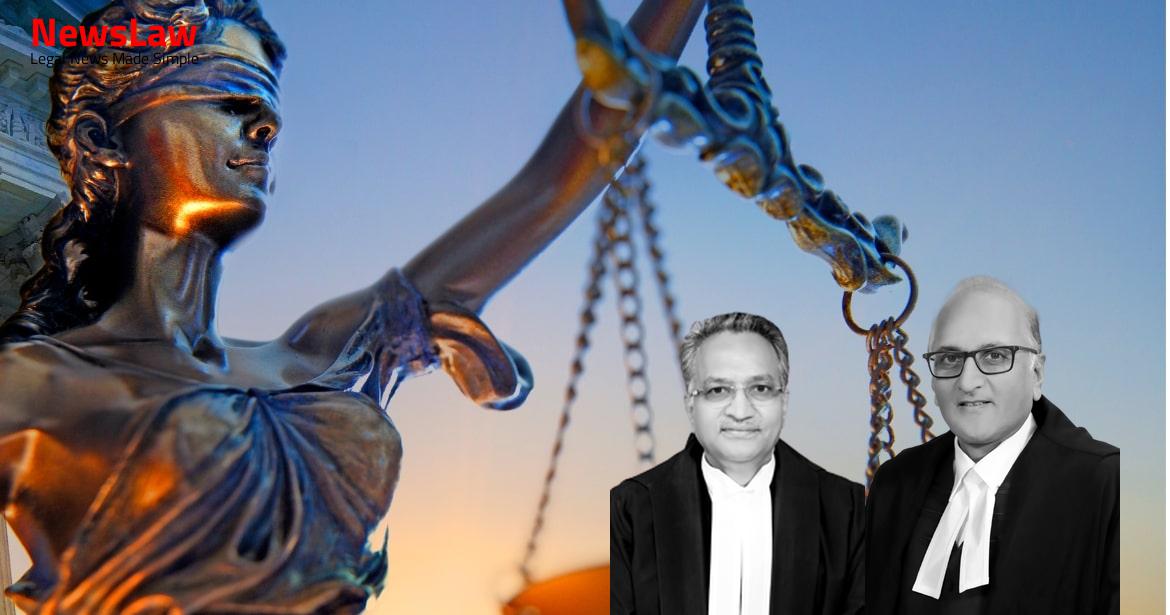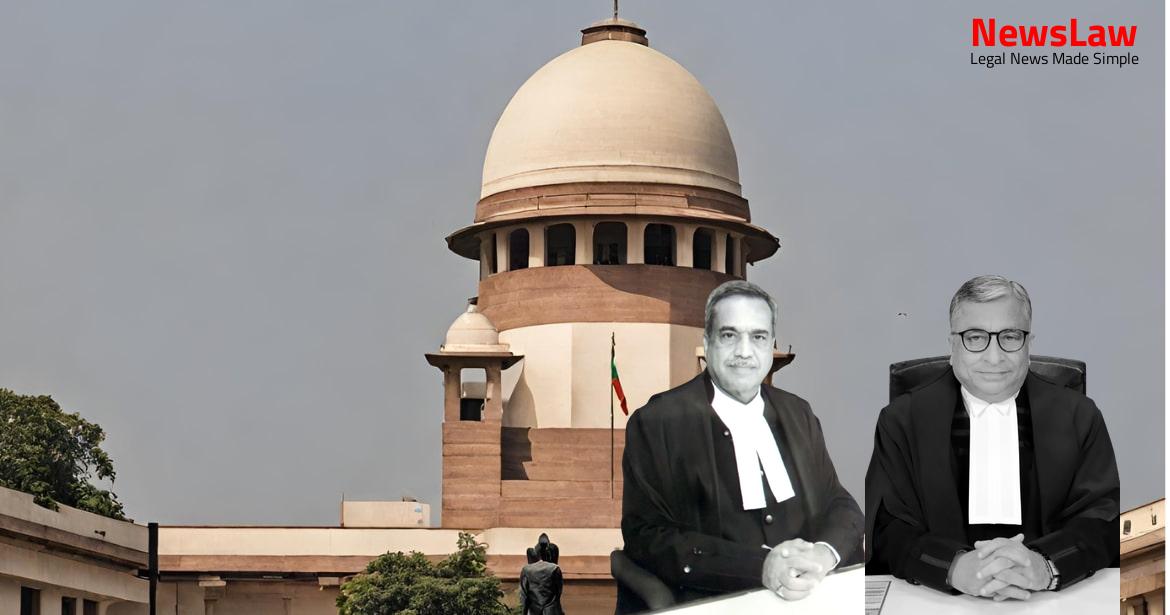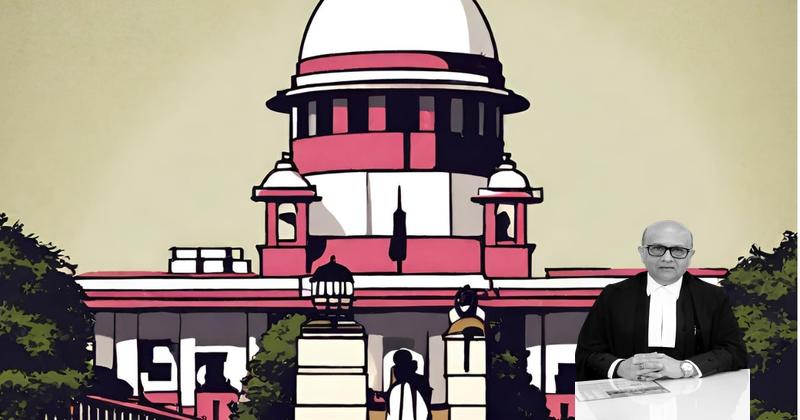Delve into the detailed legal analysis of a case concerning environmental issues in a Solid Waste Disposal Project. The court’s examination of jurisdictional constraints, expert opinions, and the significance of specialized adjudication encapsulates the complexities of environmental law. Stay tuned to unravel the nuances of this compelling legal saga.
Facts
- The appellant had not obtained permission from the competent authority for setting up the Project in the rocky and hard area near a river and dam which is a water supply source for the inhabitants of District Ratnagiri.
- The appellant refuted claims of possible environmental fallout due to the Project’s location, stating that the land belonged to the State Government and was allotted after consultation with all concerned parties.
- Trucks carrying solid waste to the Project site would have to pass through private lands, potentially causing pollution to the nearby river flowing through various villages.
- The selection of the current Project location was criticized as ill-advised and likely to cause health issues for villagers as well as pollute the river.
- Other more suitable lands were available in the jurisdiction for the Project, but political intervention led to the selection of the current rocky, hard, and sloppy location.
- A High-Level Committee established by the State Government identified the suit property as ideal for the Project, with compliance to all environmental regulations, based on expert recommendations.
- The Project is mandated to collect solid waste daily from the localities in Ratnagiri District and dispose of it as per standard protocol to prevent pollution.
- The Project is intended to be in line with the Environment (Protection) Act, 1986 and Municipal Solid Wastes (Management and Handling) Rules, 2000, with necessary clearances from competent authorities.
- Expert opinions and reports have been submitted regarding the process of waste collection and disposal, emphasizing the need for compliance with environmental laws and regulations.
- Respondent Nos. 1 to 19 filed a suit for permanent injunction against the appellant and State of Maharashtra to stop the Solid Waste Disposal Project at the suit property.
- Plaintiffs claimed that the Project would cause pollution to the Dam water and river but admitted to having no knowledge or expertise on the matter.
- Plaintiffs did not provide strong proof of the existence of residential colonies near the proposed Project.
- Plaintiffs’ case was based on personal knowledge rather than scientific evidence.
- Plaintiffs’ admissions during cross-examination indicated that the appellant had consulted with local authorities before proceeding with the Project.
Also Read: Land Acquisition Challenges for Integrated Infrastructure Project
Issue
- The trial Court framed six issues for determination, including the harm to the health of citizens from the Solid Waste Disposal project, suitability of the suit land for the project, and obstruction of legal rights.
- The first appellate Court considered points such as the alleged injurious effects of the project on villagers’ health and the entitlement of the plaintiffs to relief and a decree of perpetual injunction.
Also Read: Analysis of Legal Issues in Property Dispute Case
Arguments
- The State argues that the subject suit was premature as the Project site is not finalized.
- The appellant denies the assertions in the plaint and calls for substantiation of the facts.
- The appellant refutes claims of potential pollution and emphasizes adherence to expert recommendations and stringent conditions.
- The appellant disputes the likelihood of polluting dam water or the river, citing official records.
- The jurisdiction of the Civil Court in environmental matters is said to be barred under the National Green Tribunal Act, 2010.
- The civil/trial Court’s injunction is challenged based on Specific Relief Act provisions.
- The State urges to allow the appeal and set aside the decree, asserting strict waste management measures.
- The Project will proceed only after necessary permissions are obtained and under supervision.
- The decision on the site’s suitability was made by the Municipal Solid Waste Committee.
- The appellant denies unilateral decision-making and claims the suit was politically motivated.
- The respondent plaintiffs maintain that the civil Court was competent to adjudicate the cause of action and grant relief of mandatory injunction as per their prayers.
- The competence of the civil Court was not challenged by the defendants.
- The Affidavit in Compliance confirms that Ratnagiri Airport is within 6 kilometers from the disputed land and has been declared as a Naval base.
- The appellants argue that the suit was not maintainable and should be dismissed with costs.
- The plaintiffs’ oral evidence suggests that the proposed project poses dangers to the life and health of citizens, making the suit property unsuitable for the project.
- Rainfall in the Konkan Region is stated to be 120 to 130 inches per year in the rainy season, supporting the plaintiffs’ concerns.
- The proposed project site is on the Northern side of the Naval base, posing environmental issues and health hazards for the population of Ratnagiri.
- Due to the topography, waste water would flow towards the river, potentially polluting it and affecting around 1 lakh people in Ratnagiri.
- The rules prohibit setting up the Solid Waste Disposal Project at the proposed location due to environmental concerns.
- The plaintiffs’ fear of future problems is based on solid grounds as the site’s slope could lead to toxic issues in the area.
Also Read: Legal Analysis on Levy of Customs Duty on Non-Excisable Goods Sold in Domestic Tariff Area by an EOU
Analysis
- The defendants acquired the suit property for a project without providing a reason for canceling a previous project at a different location.
- The trial court failed to consider the provision of Section 29 regarding the bar of jurisdiction of the civil court.
- The High Court and first appellate Court did not adequately address the environmental concerns raised in the case.
- The plaintiffs failed to establish their case for a permanent injunction based on actionable nuisance.
- The court emphasized the need for cases involving environmental issues to be transferred to the National Green Tribunal for specialized adjudication.
- The defendants did not produce evidence proving the suitability of the suit property for the project, violating Solid Waste Management Rules.
- The court concluded that the mere possibility of future nuisance was not sufficient to grant a permanent injunction.
- The judgment highlights the importance of expert evidence and clarity in proving environmental hazards.
- The court stressed the principle that a future nuisance must be imminent or likely to be irreparable to warrant injunctive relief.
- The judgment underscores the need for courts to consider alternative remedies and jurisdictional aspects in environmental cases.
- Establishment of the National Green Tribunal (NGT) is for effective and expeditious disposal of cases related to environmental protection.
- NGT has the power to enforce legal rights related to the environment, provide relief, and compensation for damages to persons and property.
- Section 29(1) of the Act states that from the date of establishment of the NGT, no civil court can entertain appeals that fall under the appellate jurisdiction of the Tribunal.
- Section 29(2) prohibits civil courts from settling disputes or entertaining claims for relief, compensation, or restitution that can be adjudicated by the Tribunal.
- Civil courts are also restricted from granting injunctions related to actions before the Tribunal.
- In a quia timet action, the court will only invalidate an order if the right remedy is sought by the right person in the right proceedings and circumstances.
- The court will not interfere until an actual nuisance has been committed or a strong case of probability of imminent danger is shown.
- Recourse to the court is necessary to establish the cause of invalidity and to get it quashed or upset.
- An order, even if not made in good faith, can still have legal consequences and may be valid for one purpose or person while void for another.
- An order may be hypothetically a nullity, but the court may refuse to quash it based on various grounds.
- An order remains effective for its ostensible purpose unless declared invalid by a competent court.
- In cases of threatened injury, legal proceedings must be initiated to establish the invalidity of an order for it to be effectively resisted.
- In a quia timet action, if convinced, the court may interfere by appointing a receiver, directing security, issuing injunctions, or using other remedial processes.
- Court could not answer the issue based on assumptions or unsubstantiated claims of the plaintiffs
- Amended provision does not apply to the present case
- Civil suit filed by plaintiffs should have been dismissed, as done by the trial Court
Decision
- The suit filed by the plaintiffs (respondents) has been dismissed with costs.
- The plaintiffs or any other affected person can still make representations to the appropriate authority regarding the proposed Project.
- If the decision on statutory permissions is not acceptable, the matter can be taken to the NGT or another forum.
- All questions in this regard are left open.
- The appeal has succeeded, and the judgments of the lower courts are set aside.
- The civil suit filed by the plaintiffs is decreed as dismissed with previous observations.
- No costs are awarded in this case.
- Pending interlocutory applications stand disposed of, and the appeal is allowed with costs.
- The defendants are permanently prohibited from starting the proposed Solid Waste Project on the suit property.
Case Title: RATNAGIRI NAGAR PARISHAD Vs. GANGARAM NARAYAN AMBEKAR (2020 INSC 388)
Case Number: C.A. No.-002412-002412 / 2020



